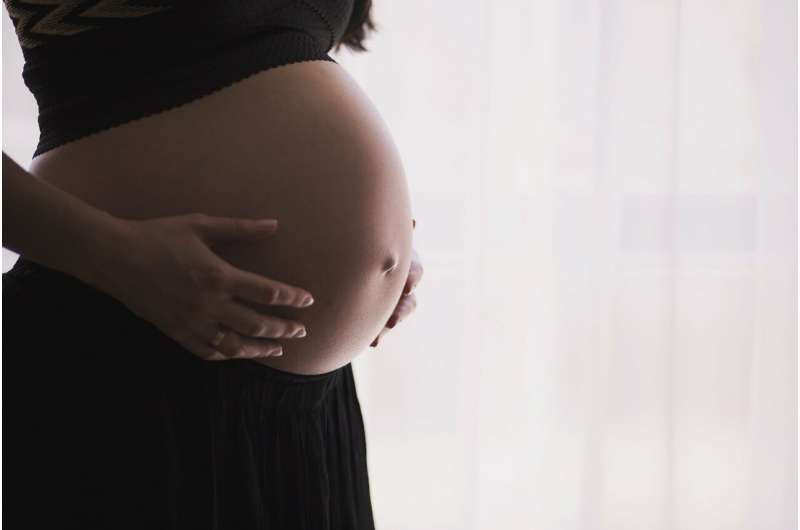Sleep problems during pregnancy affect glucose, may increase risk of childhood obesity

A study conducted by Sarah Farabi, Ph.D., RN, while she was a post-doctoral fellow working with Dr. Teri Hernandez at the University of Colorado College of Nursing and School of Medicine in 2018 found that mild sleep apnea changed sugar levels during pregnancy and was connected to infant growth patterns related to increased risk of obesity.
Published in the Journal of Clinical Endocrinology and Metabolism, the study included 18 women who did not have gestational diabetes and a body mass index of 30-40 kg/m2 during their third trimester—making them at higher risk for sleep apnea. Twelve of the 18 participants were diagnosed with sleep apnea. "They were very surprised by the diagnosis. Often unrecognized, obstructive sleep apnea worsens over the course of a pregnancy and is associated with poorer perinatal outcomes like gestational diabetes and bigger babies," said Farabi.
According to Farabi, "In this study, the more severe the mother's sleep apnea, the more likely she was to have higher blood sugar throughout the day and night. The data indicate that improving sleep habits, as well as screening for and potentially treating sleep apnea may help improve maternal infant outcomes in this high-risk population." Unlike other studies, the sleep patterns and glucose were directly measured using personal monitoring devices instead of relying on self-report, making the data much stronger in the story they tell.
"We showed that mild undiagnosed sleep apnea is related to higher glucose patterns during pregnancy, even in women who do not have gestational diabetes. By addressing sleep apnea with overweight women during pregnancy, we might be able to improve mother's sugar levels and insulin resistance, as well as the potential for fetal overgrowth and childhood obesity," said Farabi. The combination of improved sleep and nutrition patterns may improve maternal and fetal outcomes.
Study participants were monitored at home with a WatchPAT wrist device and finger probe for three consecutive nights. The WatchPAT detects oxygen saturation levels and external movement. During the three days, they also had their diet provided by the Colorado Clinical and Translational Science Bionutrition Core, and wore a monitor that measured glucose every 5 minutes. Two weeks after delivery, a non-invasive test called a PEAPOD measured the baby's body composition via air displacement.
More information: Journal of Clinical Endocrinology and Metabolism (2019). DOI: 10.1210/jc.2019-00159















